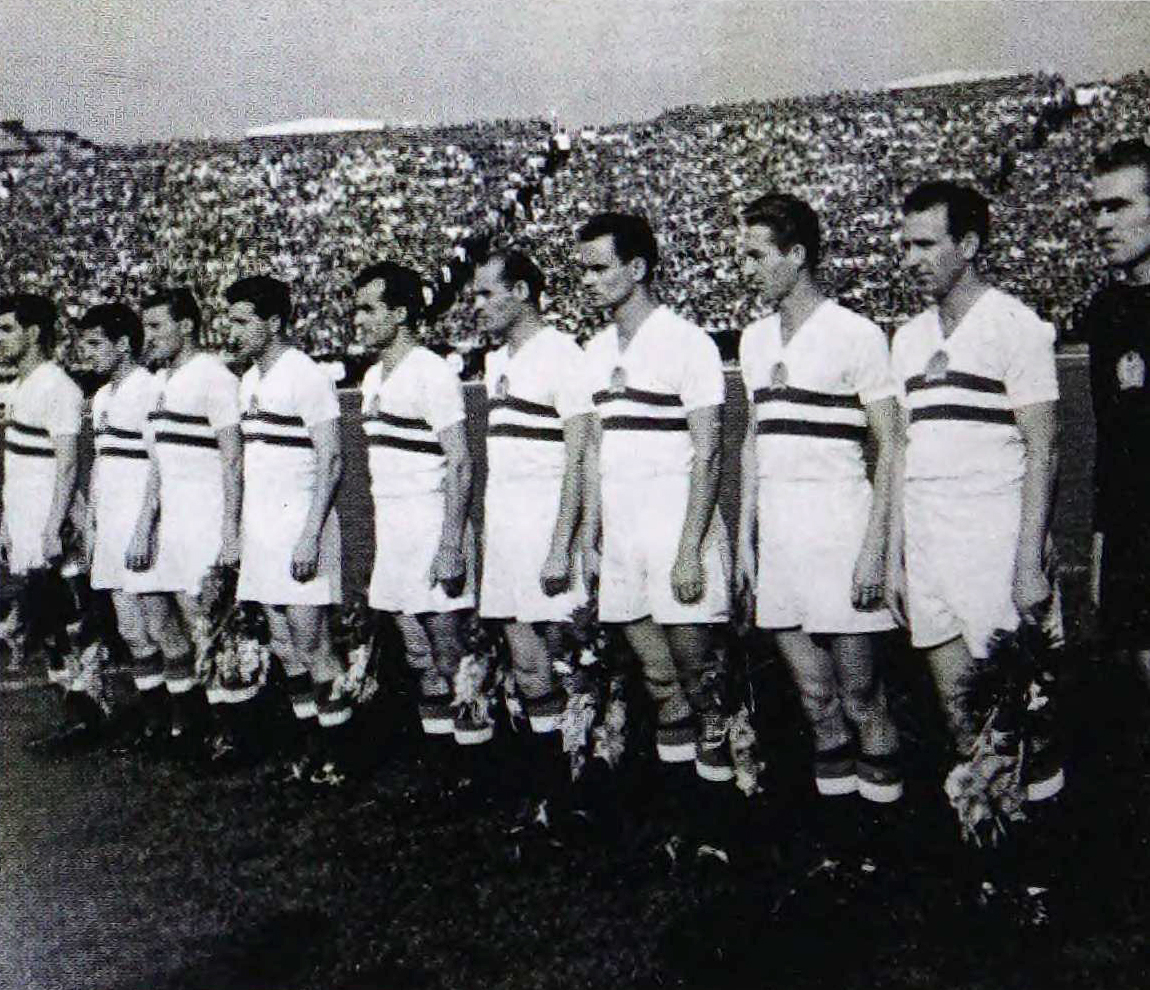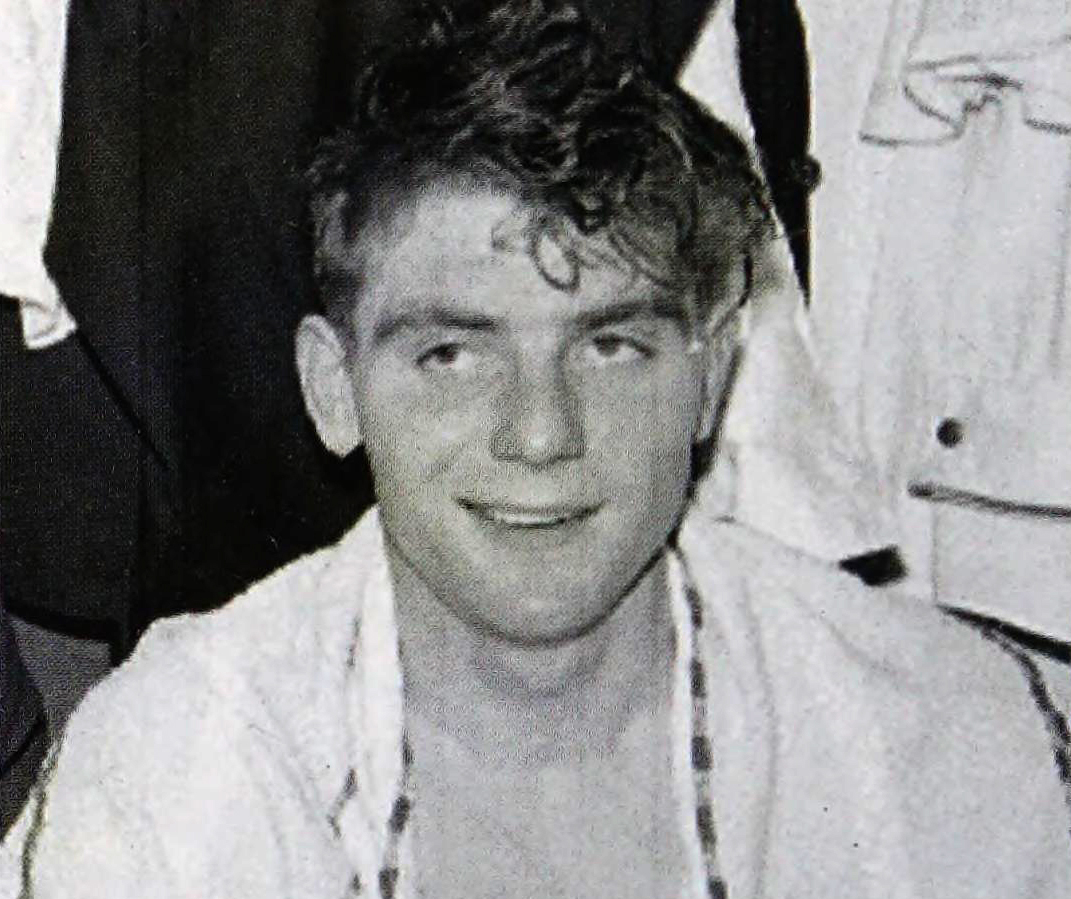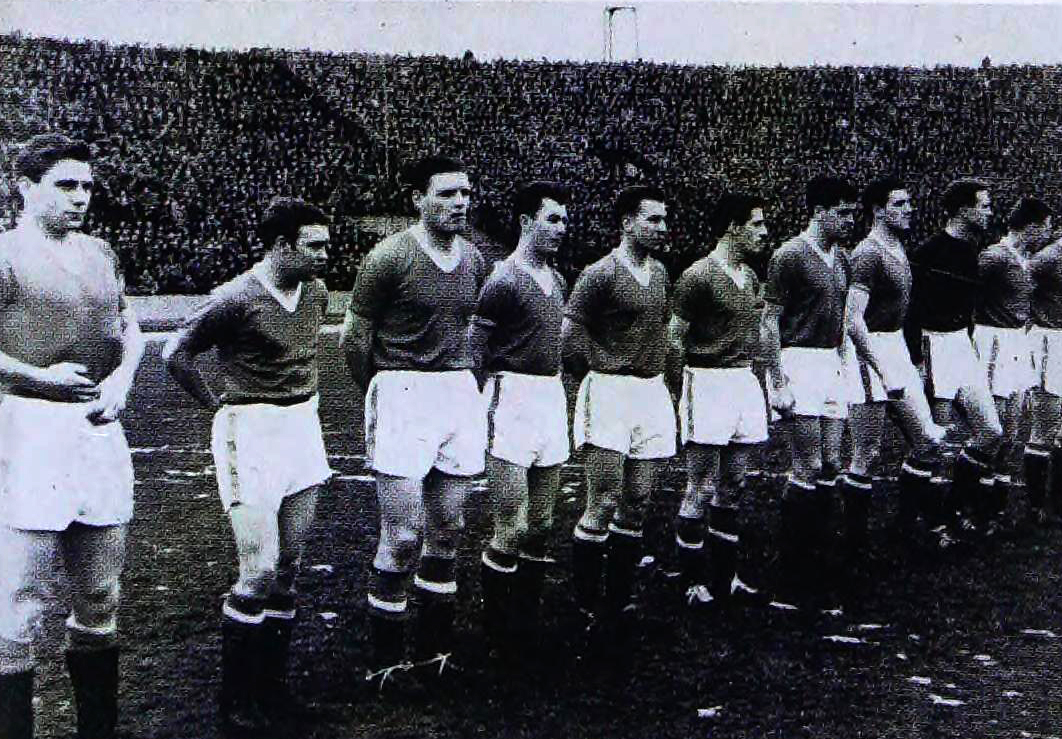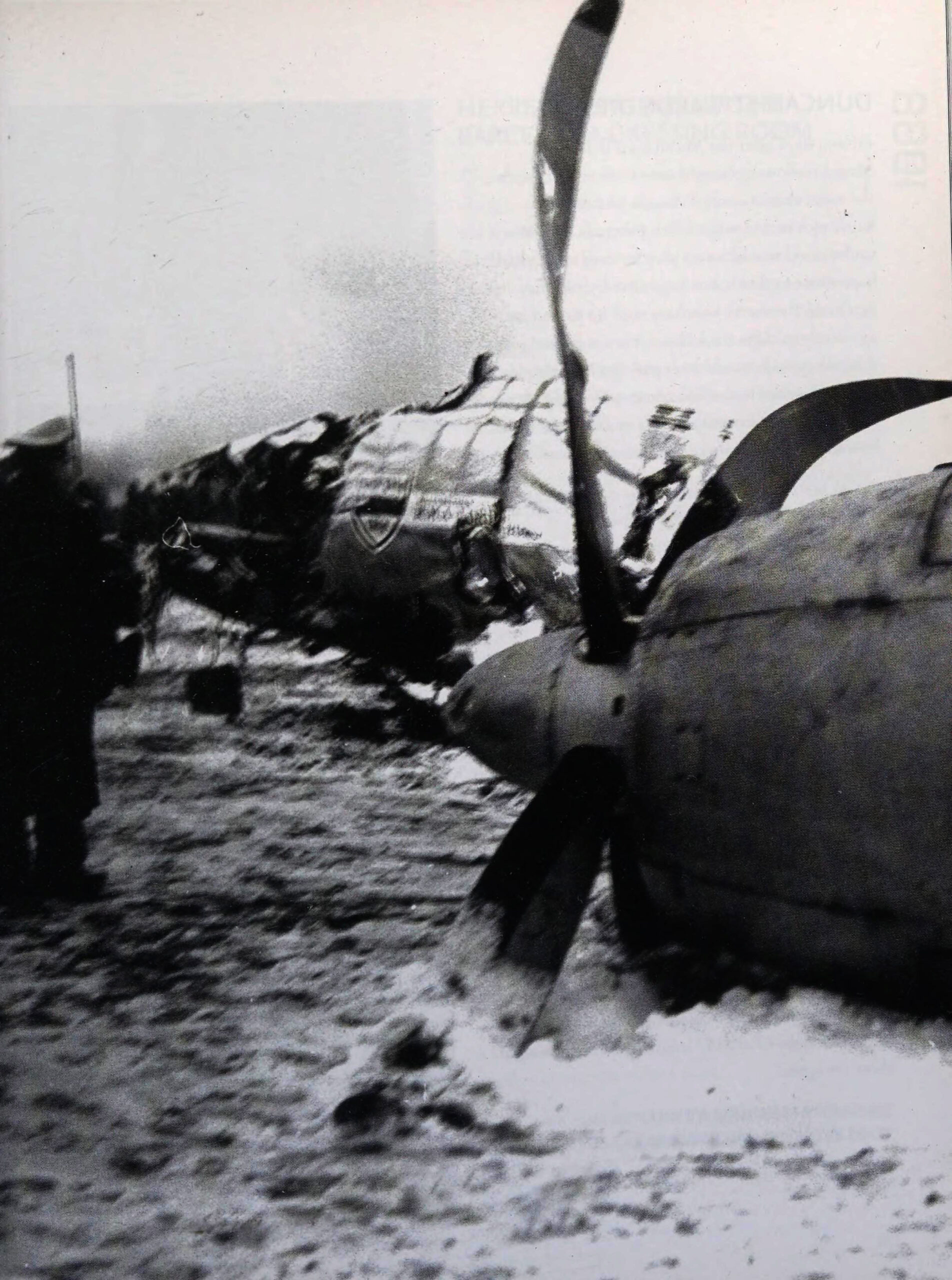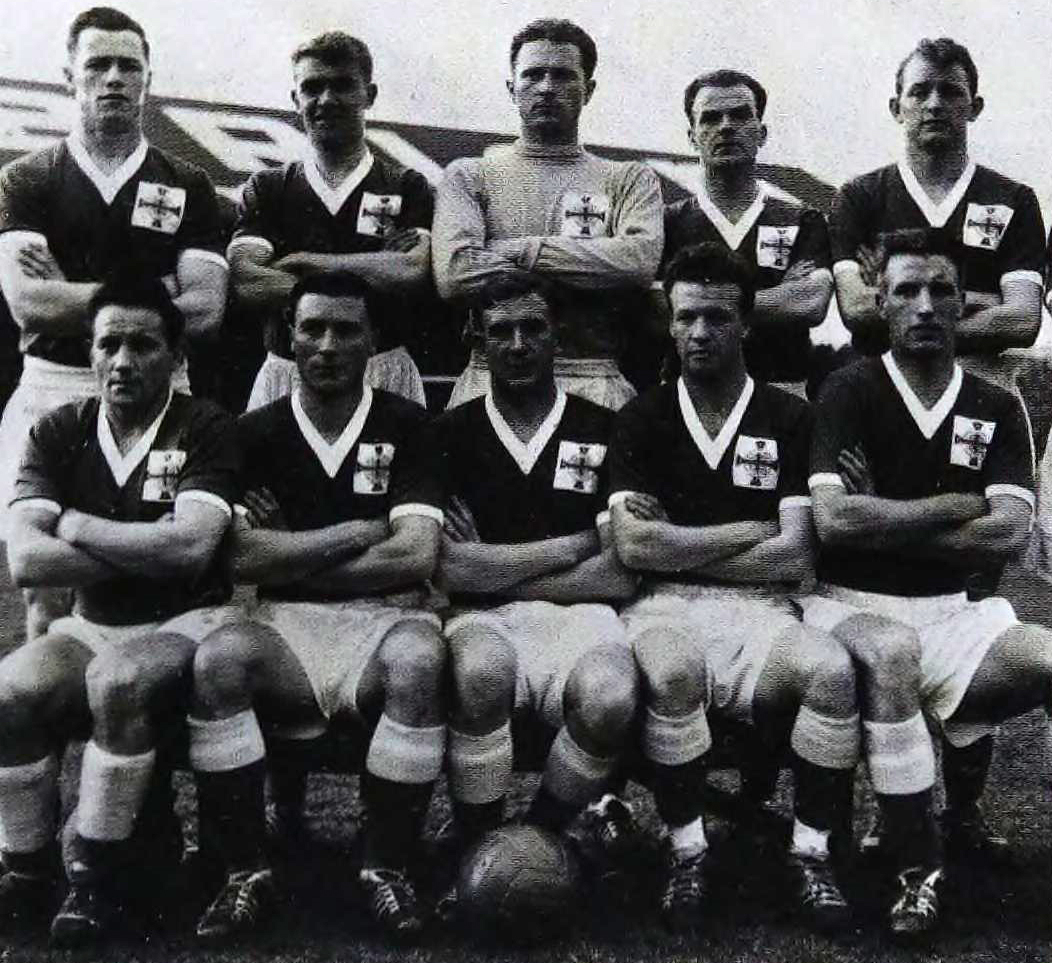2022-11-02
Nr. 335
THE MUNICH AIR DISASTER (1958)
On 6 February 1958 the BEA Ehzabethan aircraft carrying the reigning English League champions Manchester United back from Yugoslavia atter they had claimed a place in the European Cup semi-finals with a 3-3 draw against Red Star Belgrade landed at Munich’s Reim airport to refuel.
Atter a quick stop, the United party reboarded the aircraft, but take-off was twice aborted by the pilots. The tense passengers returned to the airport terminal convinced that ice on the runway would force them to stay overnight in the German city. Duncan Edwards sent a famous telegram to his landlady saying, «All flights cancelled. Flying tomorrow. Duncan.»
The aircraft’s captain James Thain attempted a third take-off, but once again he had problems getting the plane off the ground and as the Elizabethan left the runway it went through a fence, crossed a road and struck a house. The plane brake up and was scattered over an area of 150 square metres.
The final death toll would reach 23 and include United players Roger Byrne, Geoff Bent, Eddie Colman, Mark Jones, David Pegg, Tommy Taylor and Liam Whelan. The United secretary Walter Crickmer, trainers Tom Curry and Bert Whalley, and eight journalists also perished. The United manager Matt Busby was badly injured and given only a 50-50 chance of survival, while Duncan Edwards was also critically ill.
Among many tributes, goalkeeper Harry Gregg, who saved the lives of his teammates and other passengers, said, «The most important thing about the Busby Babes… they say they might have been the greatest team, but one thing’s very sure, they were the best loved team.»
Manchester United line up to face Red Star Belgrade in the European Cup quarter-final.
The mangled wreckage of the plane after the fatal crash.
2022-11-01
Nr. 334
NORTHERN IRELAND KNOCK OUT ITALY (1958)
In 1958, for the first and only time in their history, Italy failed to qualify for the World Cup. While the Italians beat both Northern Ireland and Portugal at home in their group, they lost 3-0 to the Portuguese in Lisbon to set up a winner-takes-all match against Northern Ireland in Belfast. After the original December 1957 game was replaced with a 2-2 fuendly when the referee’s flight was cancelled, the sides met again on 15 January 1958 at Windsor Park. Northern Ireland led 2-0 lead at half time with goals from Jimmy Mcilroy and Wilbur Cush, but while Dino Da Costa responded for Italy it wasn’t enough to take them to Sweden.
Northern lreland held on to claim the 2-1 victory over ltaly that sent them to Sweden and left the ltalians disappointed at home.
2022-10-31
Nr. 333
CHARLES ACCEPTS ITALIAN JOB (1957)
In the summer of 1957 Welsh striker John Charles of Leeds United became one of the first British players to join a foreign club when he signed for Juventus for a then British record fee of £67,000. Over the following five seasons in Turin Charles proved his worth by
scoring 93 goals in 155 games and winning the Scudetto on three occasions. Three decades later Juventus fans voted Charles their greatest ever foreign player. «I had many happy memories playing for Leeds and Wales, but what gave me the most pleasure was winning the Italian championship with Juventus at the end of my first season with them in 1958,» said Charles.
Juventus captain Gianpiero Boniperti sizes up his team’s new £67,000 capture John Charles when the Welshman arrived in Turin.
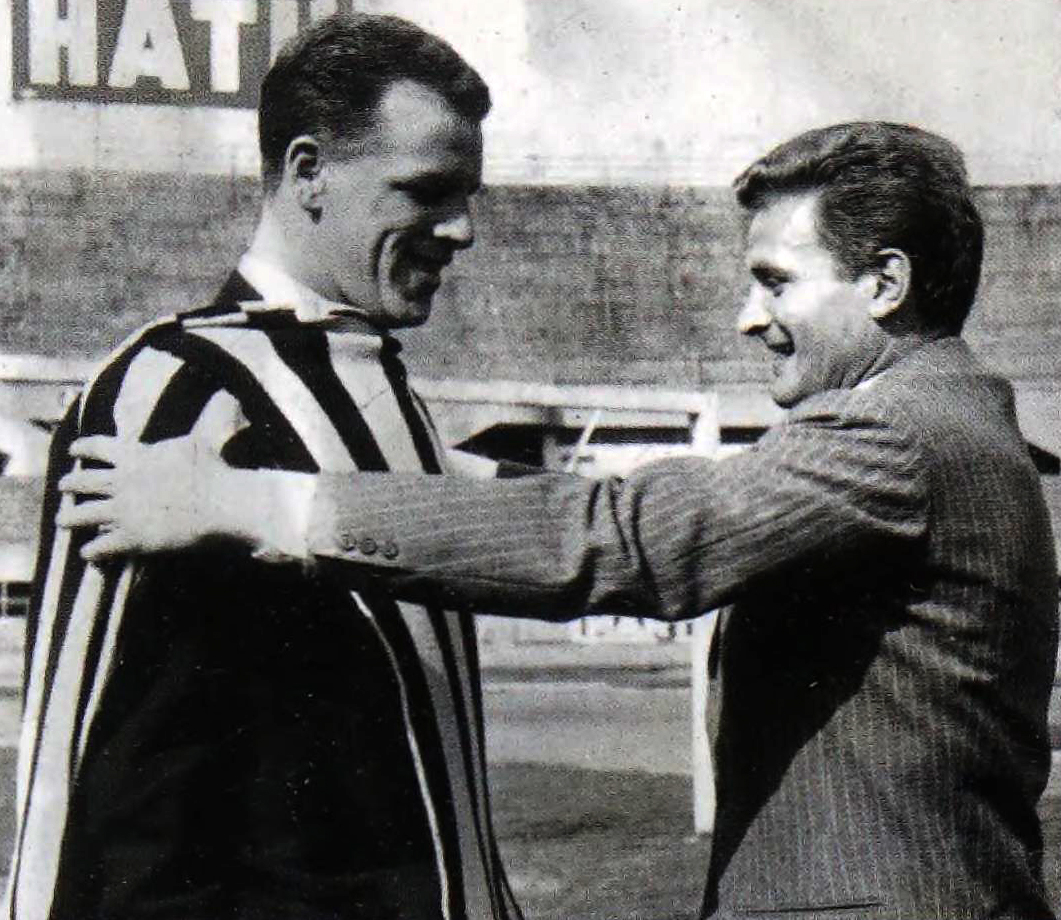
2022-10-28
Nr. 332
EULOGIO MARTINEZ RAMIRO SCORES THE NOU CAMP’S FIRST GOAL (1957)
For all that Barcelona’s magnificent Camp Nou Stadium is a symbol of Catalan identity, the first goal scored there came from a Paraguayan, Eulogio ‘Kokito’ Martinez Ramiro, who netted in the 11th minute of a 4-2 victory over Select Warszawa. The 24 September match had been specially arranged to mark the opening of Camp Nou and over 90,000 fans packed the new arena, which took three years to build and replaced the old Les Corts Stadium. Goal machine Martinez was Barcelona’s top scorer on three occasions and helped the Catalans to two La Liga titles, two Spanish Cups and two European Fairs Cups.
FC Barcelona’s imposing Camp Nou. The current capacity of the grand stadium is 98,477.
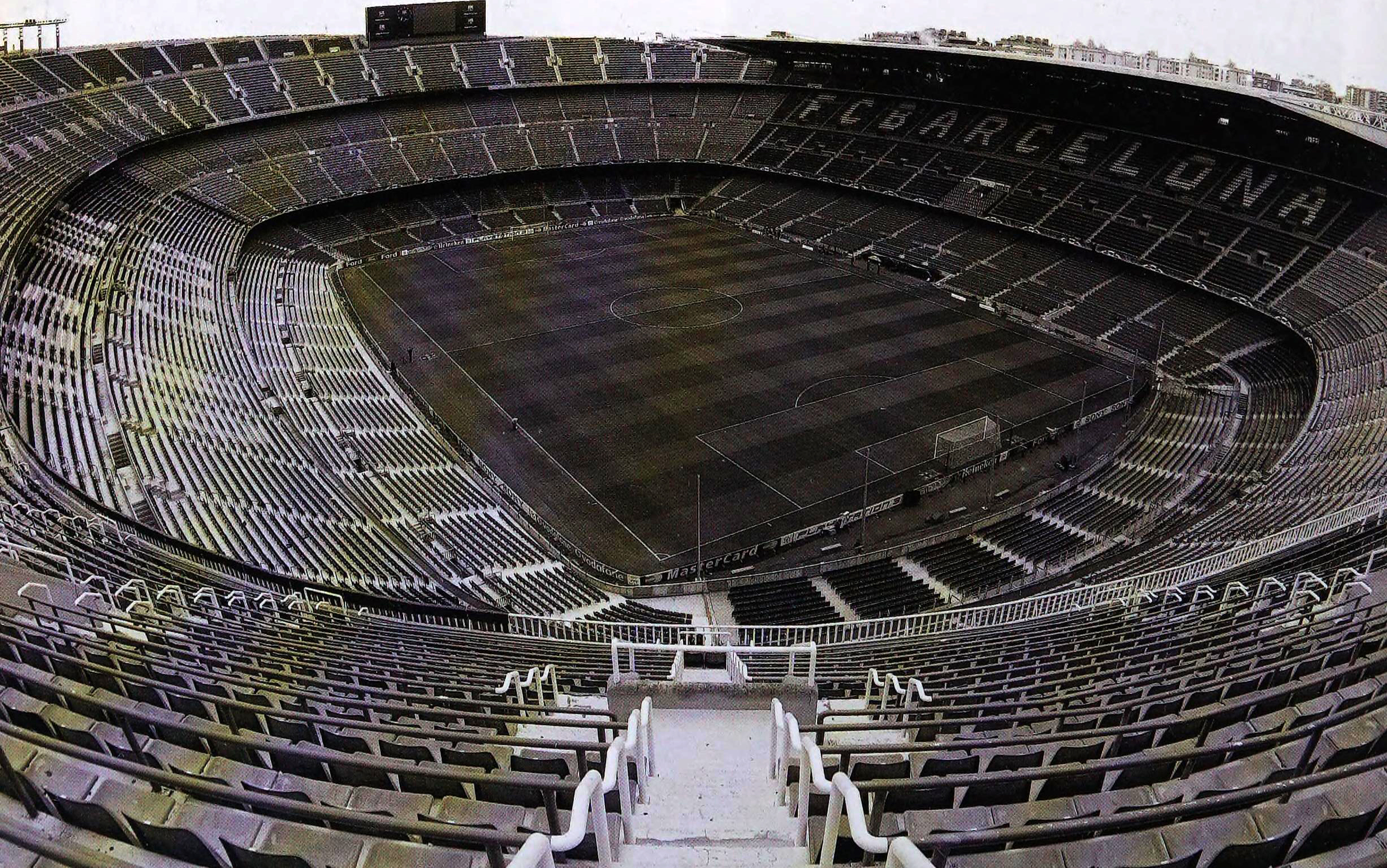
2022-10-27
Nr. 331
STANLEY MATTHEWS CROWNED ‘KING OF FOOTBALL’ (1957)
Many players have been hailed as the King of Football, but only one has actually been given the honour at a special ceremony. This was experienced by Sir Stanley Matthews, who missed a week’s training to fly to Ghana, to be made ‘King of Football’ by a tribe as part of the country’s independence day celebrations. Matthews also played in several matches in front of President Nkrumah and large crowds. Such an honour serves to prove the former Stake and Blackpool winger’s global fame. When Matthews died in 2000 Pele said he was, «the man who taught us how football should be played».
Stanley Matthews’ Ghanaian adventure is testament to how the Stoke legend had become one of the most famous names in world football.
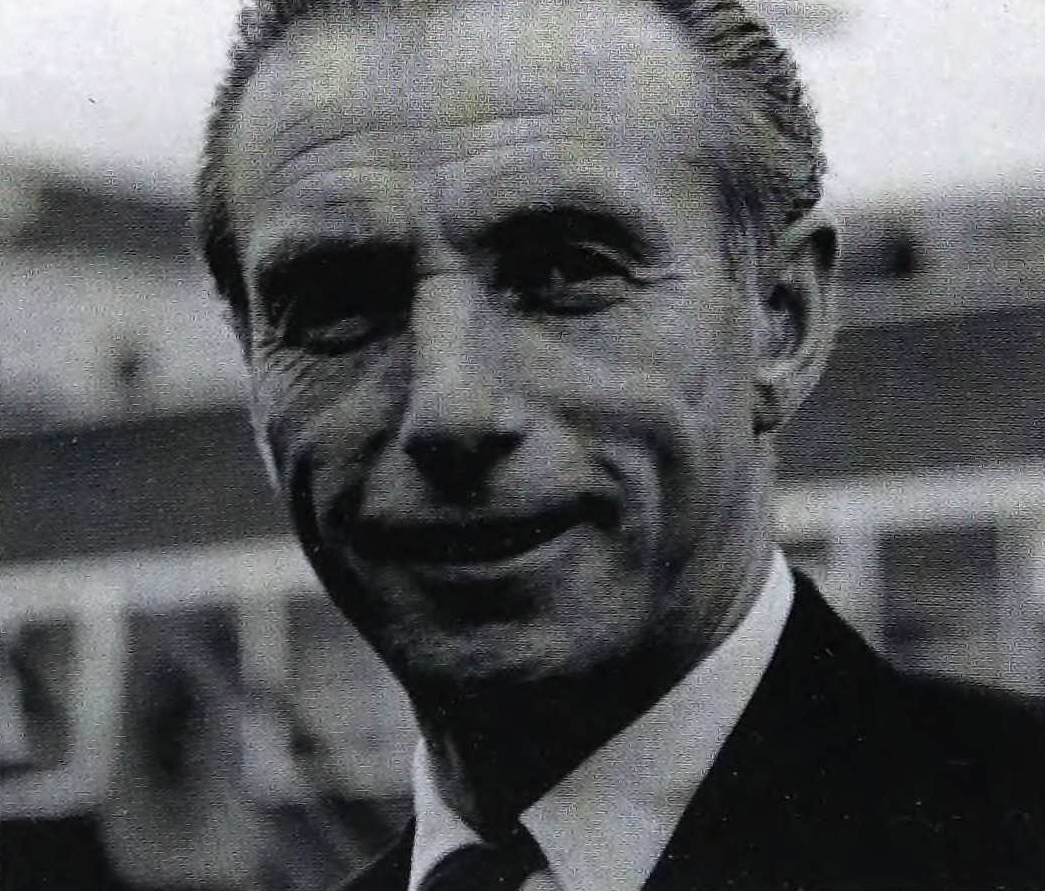
2022-10-26
Nr. 330
MANCHESTER UNITED HAVE THE DOUBLE IN THEIR GRASP (1957)
Manchester United were confident of becoming the first English side to win the double in the 20th century – they just had to beat Aston Villa in the Cup final.
However, on 6 May they were hit by a crucial injury after only six minutes as goalkeeper Ray Wood gathered a header from Villa left-winger Peter McParland and was then knocked to the ground by him. Wood broke his cheekbone and was stretchered off. Today McParland would have been sent off instantly, but instead he remained on the pitch and scored twice past United’s stand-in keeper Jackie Blanchflower, to win the game 2-1 and take the Cup back to Villa Park.
United goal keeper Ray Wood receives treatment after having his cheekbone fractured in a dash with Aston Villa’s Peter McParland.
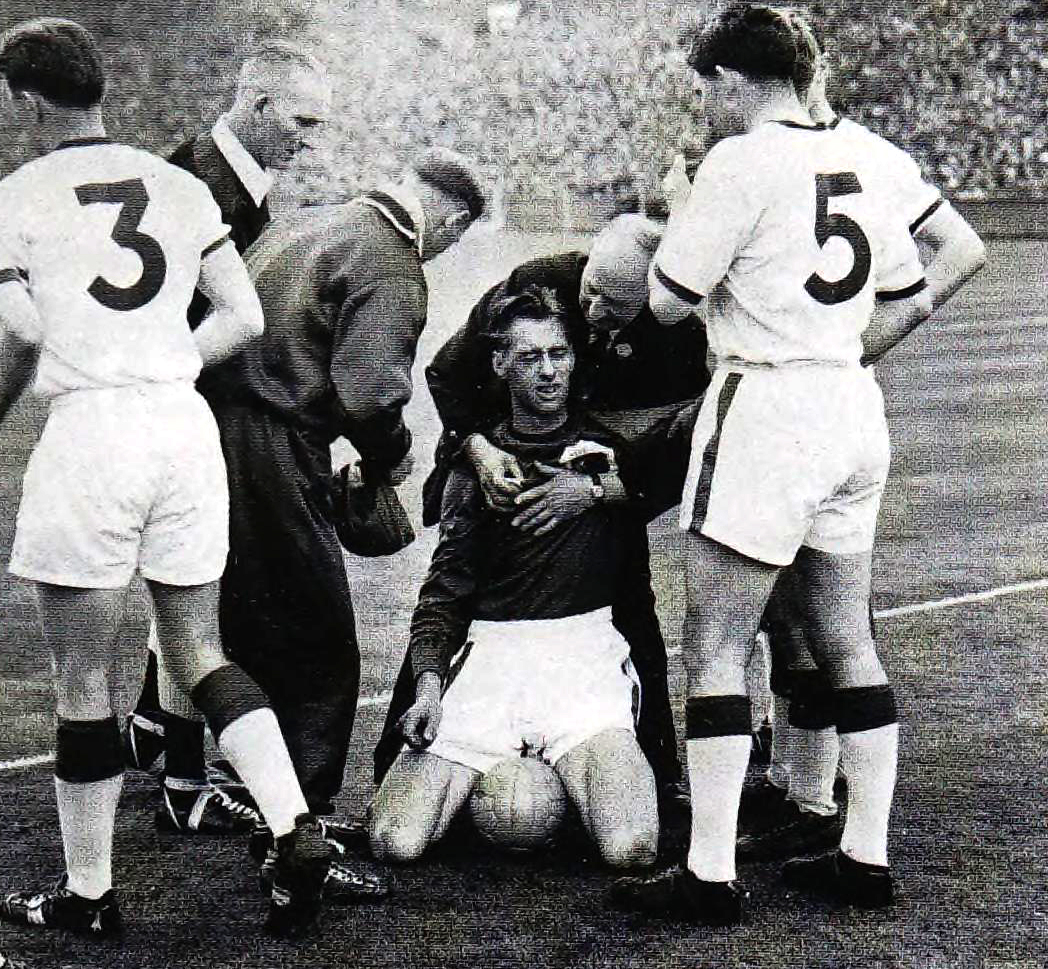
2022-10-25
Nr. 329
THE TREATY OF ROME (1957)
The European Economic Community (EEC) was created when six nations – France, West Germany, Italy, Belgium, Holland and Luxembourg – signed the Treaty of Rome in March 1957. Britain didn’t join the EEC until January 1973, but the Treaty aimed to encourage freedom of movement of labour across Europe’s borders and more footballers did move across the continent to play for foreign clubs. However, the Treaty’s major influence on football came nearly four decades later when the Belgian footballer Jean-Mare Bosman successfully argued that football was contravening it by not allowing players freedom of movement after their contracts had expired.
The signing of the Treaty of Rome which created the European Economic Community, forerunner of today’s European Union.
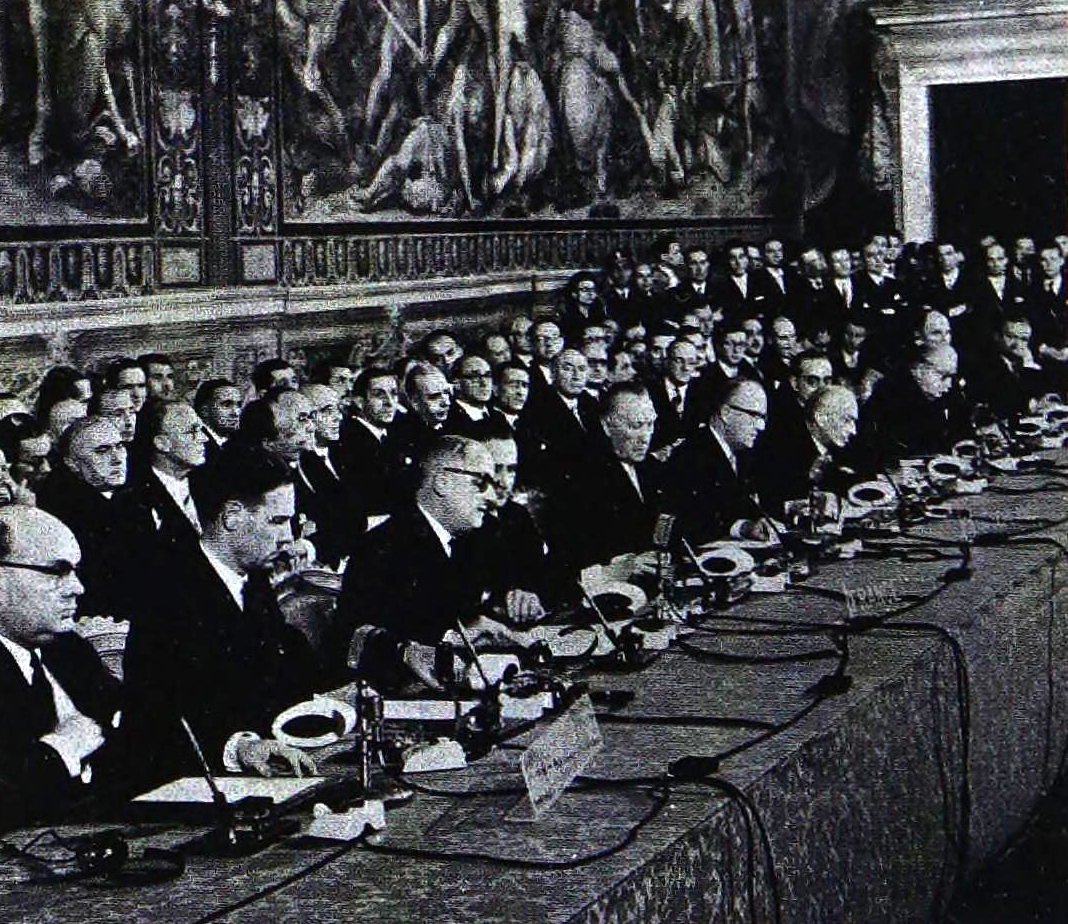
2022-10-24
Nr. 328
FIRST AFRICAN NATIONS CUP (1957)
In February 1957 Egypt became the inaugural winners of the African Nations Cup, although they triumphed in a field of only three teams. The first tournament consisted of the four founding members of the African Football Confederation (CAF) – Sudan, Egypt, Ethiopia and South Africa. However, South Africa were disqualified for their refusal to play a multiracial team, so Ethiopia were handed a bye straight to the final. There they were joined by Egypt, after they overcame Sudan 2-1 in the only semi-final. In the final in the Sudanese capital Khartoum, Egypt had little trouble getting past the Ethiopians 4-0 to be crowned African champions.
Nigeria captain Christian Chukwu is congratulated by Nigeria president Shehu Shagari as he lifts the African Cup of Nations in 1980.

2022-10-21
Nr. 327
WILLY MEISL’S WHIRLWIND REVOLUTION (1956)
Between the wars, under Hugo Meisl, Austria’s ‘Wunderteam’ finished fourth at the 1934 World Cup and were silver medal winners at the 1936 Olympics, playing football with a rare flair and freedom. Two decades later Meisl’s sportswriter brother Willy published a book called The Soccer Revolution in which he celebrated that Austrian team and hailed a formation called ‘The Whirl’, an early forerunner of ‘Total Football’, where players constantly interchange all over the pitch. «We must free our soccer youth from the shackles of playing to order, along rails as it were,» he wrote. «We must give them ideas and encourage them to develop their own.»
The front cover of Willy Meisl’s book emphasises its appeal in all the countries across the world where football is followed with passion.
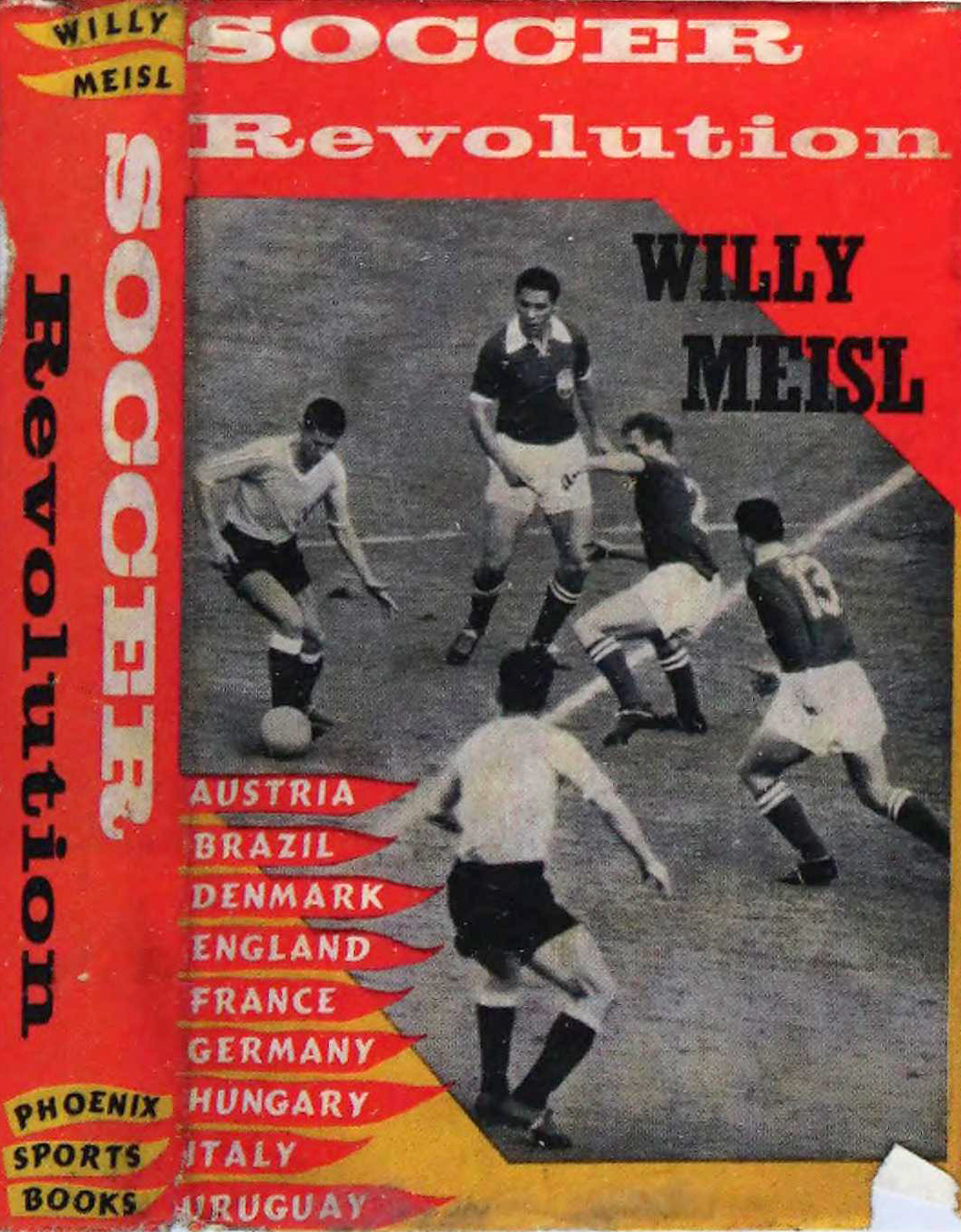
2022-10-20
Nr. 326
FUTURE STAR MAKES DEBUT AGED 15 (1956)
Pelé started his professional career as he meant to carry on – with a goal. Aged only 15, five feet tall and replacing the rested Del Vecchio, Pelé scored on his debut for Santos against Corinthians. In a sustained run in the first team he scored 15 goals in 11 games that season. He spent 18 years with Santos, resisting overtures from big European clubs to stay in Brazil, only leaving as his career was winding down to play in the MLS. Throughout his career he hit the net an amazing 1,283 times in 1,365 appearances but of his first professional goal Pelé said: «It was enough to keep me walking on air for a few days».
Brazil’s Pelé follows up as the ball flies loose during his early years at Santos, the club where he established his reputation as a world-beater.
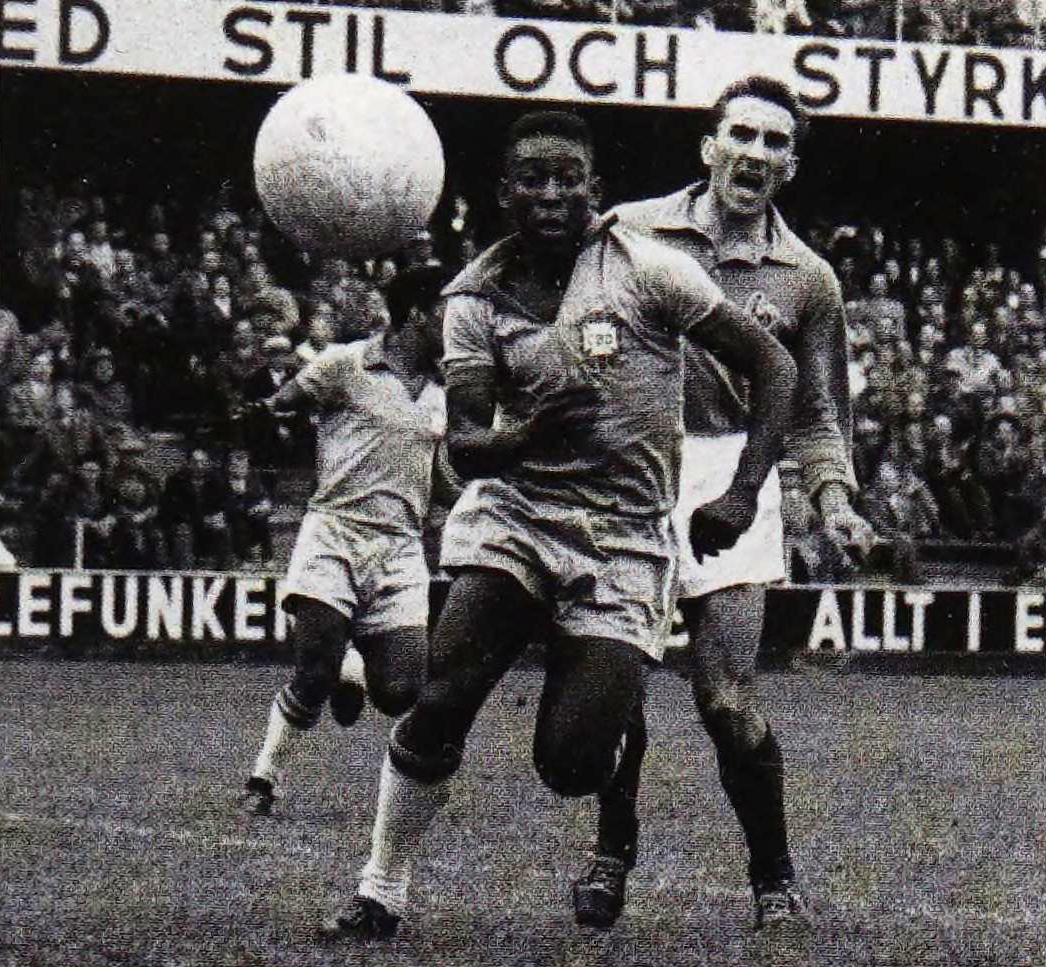
2022-10-19
Nr. 325
HUNGARIAN PLAYERS DISPERSE AFTER UPRISING (1956)
On 23 October 1956 the Hungarian people took to the streets to overthrow the Soviet-backed communist government. For 12 days it looked as though they had succeeded, but then the Soviet Union sent the tanks in. Honved’s great side were in Spain at the time for a European Cup tie against Athletico Bilbao. Honved decided it wasn’t safe to return home, summoned their families and embarked on a fundraising tour. Afterwards, some players returned to Hungary, while others defected, including Ferenc Puskas, who went to Real Madrid, and Sandor Kocsis and Zoltan Czibor, who went to Barcelona. The great Hungary side would never play together again.
The brutal crushing of the Hungarian uprising by the Soviets meant many of their great football team would never play in the country again.
